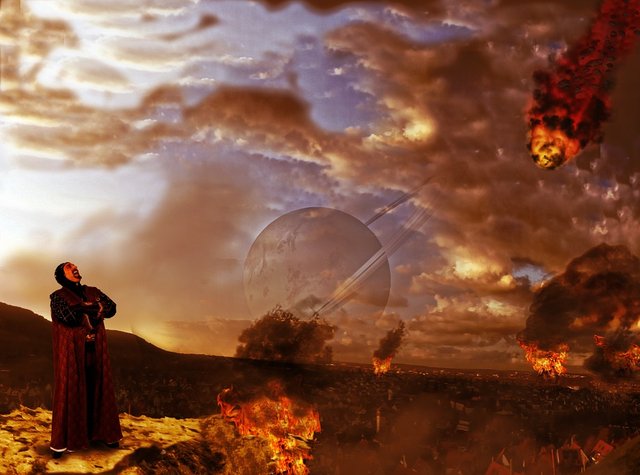
The heavy burden of responsibility rests with those who are elected to become a prophet and preach the word of God. In many religions these charismatic personalities have always acted as interpreters of God's will, serving as intermediaries between people and higher powers.
Nowhere did the prophets occupy such an important place as in Israel.
The prophets of the Old Testament — whether Abraham, Moses or Isaiah — received the divine revelation that they carried to their people through words and deeds. They demanded justice, blamed the kings, warned the Israelites-sinners about the need to return to the true path, announced the imminent punishment of the Lord or inspired the hope for the coming of the Messiah.
The prophets distinguished from ordinary people the heightened sense of their high destiny. As a rule, they learned about their vocation through a vision, or somewhere in their minds suddenly the voice of God began to sound. Often they received revelation, living alone in the mountains or in the desert. To the Prophet Moses the Lord appeared in the form of a burning bush and commanded him to go and release the people of Israel from Egyptian slavery and lead them to the Holy Land. The chosen ones as prophets were charismatic personalities possessing prophetic powers, which enabled them to bear the word of God and fulfill divine assignments.
The fight for justice
By the inspiration from above, prophets often could predict the future. True, this was only one side of their mission. In the revelations, hidden truths were revealed and reached to people. When there was a need to interpret some events, the prophets often resorted to describing the Day of Judgment. Attempts to influence the events often led to a clash with the authorities. For example, the prophet Jeremiah barely escaped death when he warned of the fall of Judea, the southern Jewish kingdom ruled by King Joachim.
Success did not always accompany the attempts of the Old Testament prophets to awaken in the people a sense of justice. Nevertheless, they served as an example of moral behavior and ideators, which are still relevant today.
The Jewish prophets are in many respects similar to the prophet Mohammed (570-632), the founder of Islam. In 610, revelations came to Mohammed, in which he was called the elect of God, called to lead the Arab people to a new faith. Islam honors other prophets, in particular Moses and Jesus Christ.
Prophets of the Old Testament
In the Book of the Prophet Joshua, in the Book of Judges of Israel and in the Books of Kings that are part of the Old Testament, there are statements and descriptions of the deeds of the early, or pre-classical prophets of Israel, who lived in the XV-XIII centuries BC. However, these records were made much later. Another group of prophets refers to the VIII-VI centuries BC and is divided into large and small, depending on the volume of their writings. The great prophets — Isaiah, Jeremiah, Ezekiel and Daniel — number 12 prophets — Hosea, Joel, Amos, Obadiah, Jonah, Micah, Naum, Habakkuk, Zephaniah, Haggai, Zechariah and Malachi.
Congratulations! This post has been upvoted from the communal account, @minnowsupport, by Mamasetta from the Minnow Support Project. It's a witness project run by aggroed, ausbitbank, teamsteem, theprophet0, someguy123, neoxian, followbtcnews/crimsonclad, and netuoso. The goal is to help Steemit grow by supporting Minnows and creating a social network. Please find us in the Peace, Abundance, and Liberty Network (PALnet) Discord Channel. It's a completely public and open space to all members of the Steemit community who voluntarily choose to be there.
Downvoting a post can decrease pending rewards and make it less visible. Common reasons:
Submit